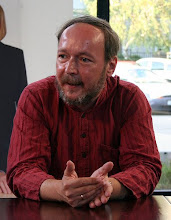
The National Alliance on Access to Justice for Persons living with a Mental Illness [NAAJMI] was created in the year 2005 to serve as a dialogue forum and to build a bank of insights on Mental health and Human Rights, across a diversity of constituencies and stake holders all over the country. The alliance is a strong collective voice around the country demanding justice and access to justice for persons living with mental illness based on the values of dignity, respect and autonomy. Fueled by the Law for All Initiative of the Ashoka [Innovators for the Public] NAAJMI has held "Bill of Rights"(BOR) consultations in each of the four regions. Through this collective brainstorming and negotiation process, a compilation was made of non-negotiable and absolute human rights that must prevail in the mental health sector.
India signed and ratified the Convention on the Rights of Persons with Disabilities [CRPD], and with the requisite number of countries ratifying it, the CRPD has come into force on 3rd May 2008. In the present CRPD environment, various laws and policies in the mental health sector have to be rights compliant. The BORs achieved success in the incredible number of questions thrown up for dialogue and the breadth of solutions sought by various stake holders, in coming up with a consensual human rights language for persons with psychosocial disabilities.
NAAJMI partners, Bapu Trust, Anjali, and Basic Needs, in collaboration with the Human Rights Law Network and Snehi organized a two day National consultation on "Citizens' charter of Human rights for persons living with a mental illness" on 10th and 11th October, 2008 at the Indian Social Institute, New Delhi. The objective of this consultation was to invite civil society, mental health, legal and human rights fraternity to engage with NAAJMI's proposal of rights for persons living with a mental illness, in the context of law, access to justice and the CRPD.
Amita Dhanda and I facilitated the program.
We again adopted the bottom up approach: we started with the NAAJMI Bill of Rights (BOR) jurisprudence of rights and looked at the various rights they have identified in the consultation process. Then we looked at CRPD and answered the question: How can CRPD strengthen advocates' hands in our work? We used the Right to Health to illustrate this approach. On the second day we focussed on legal capacity and force in psychiatry, the two most contentious issues both in CRPD and in BOR.
The presentations were followed by lively discussions.

No comments:
Post a Comment